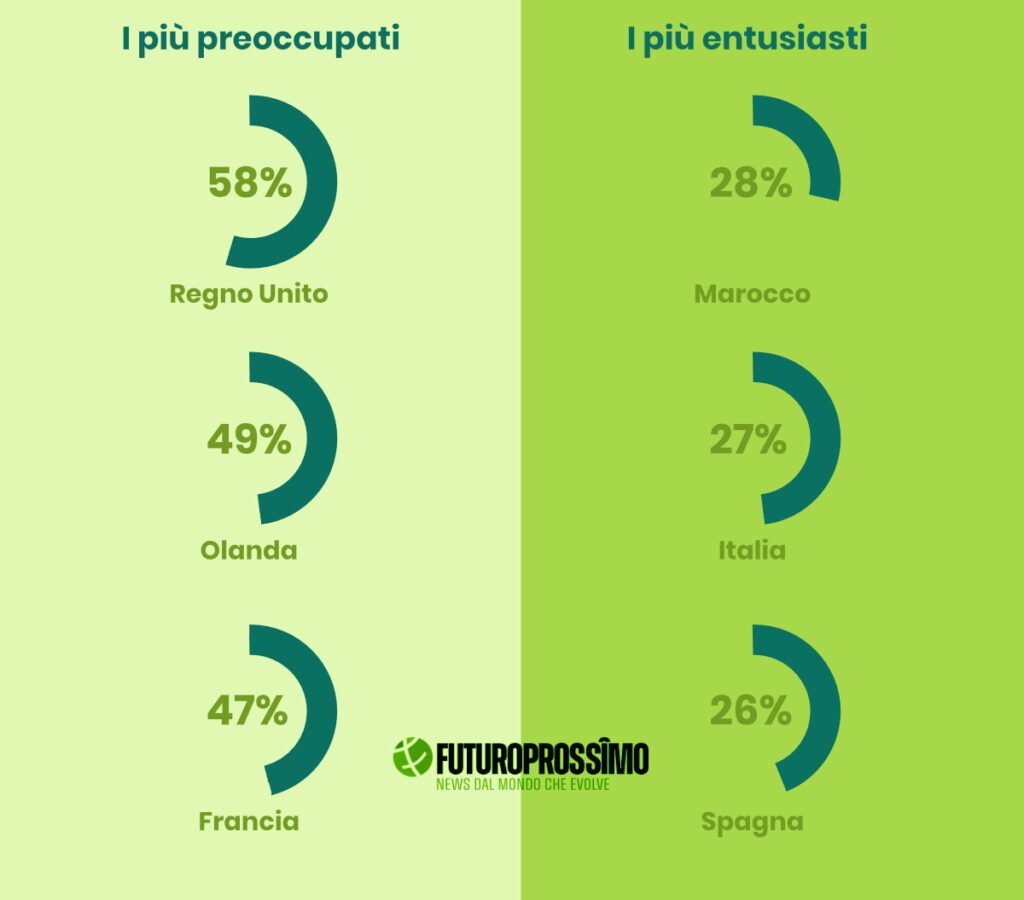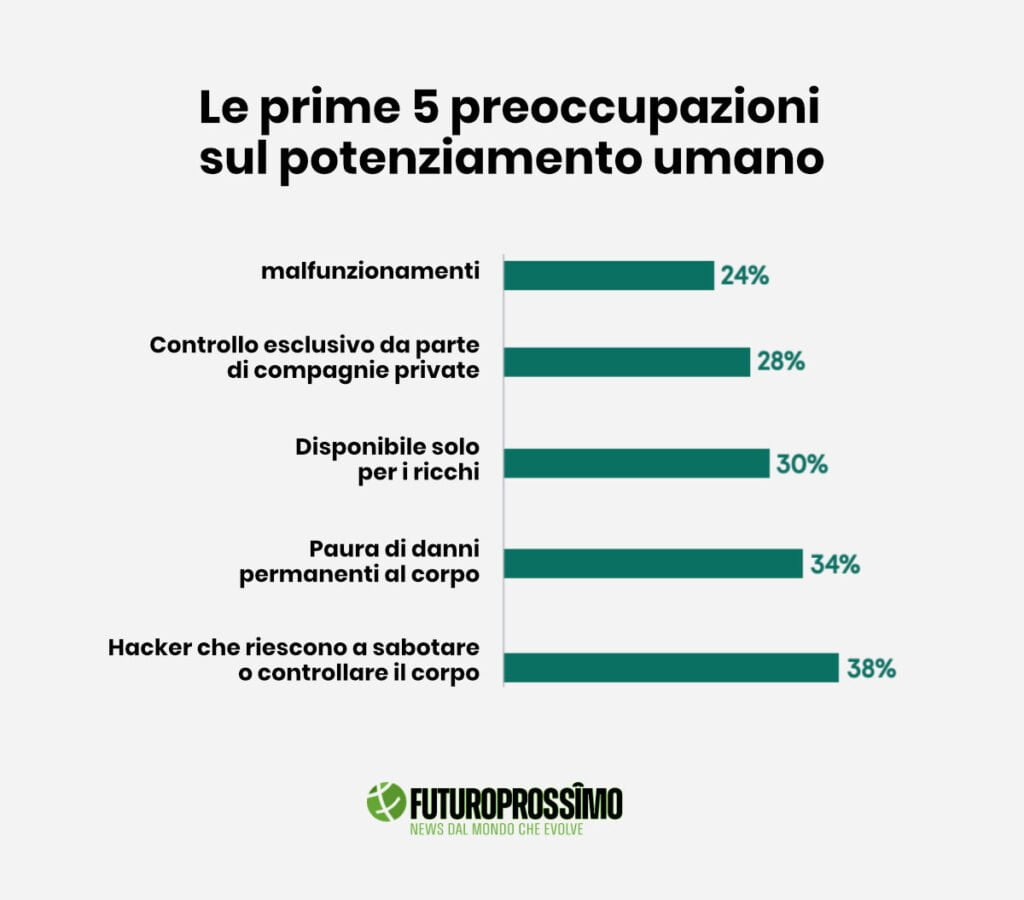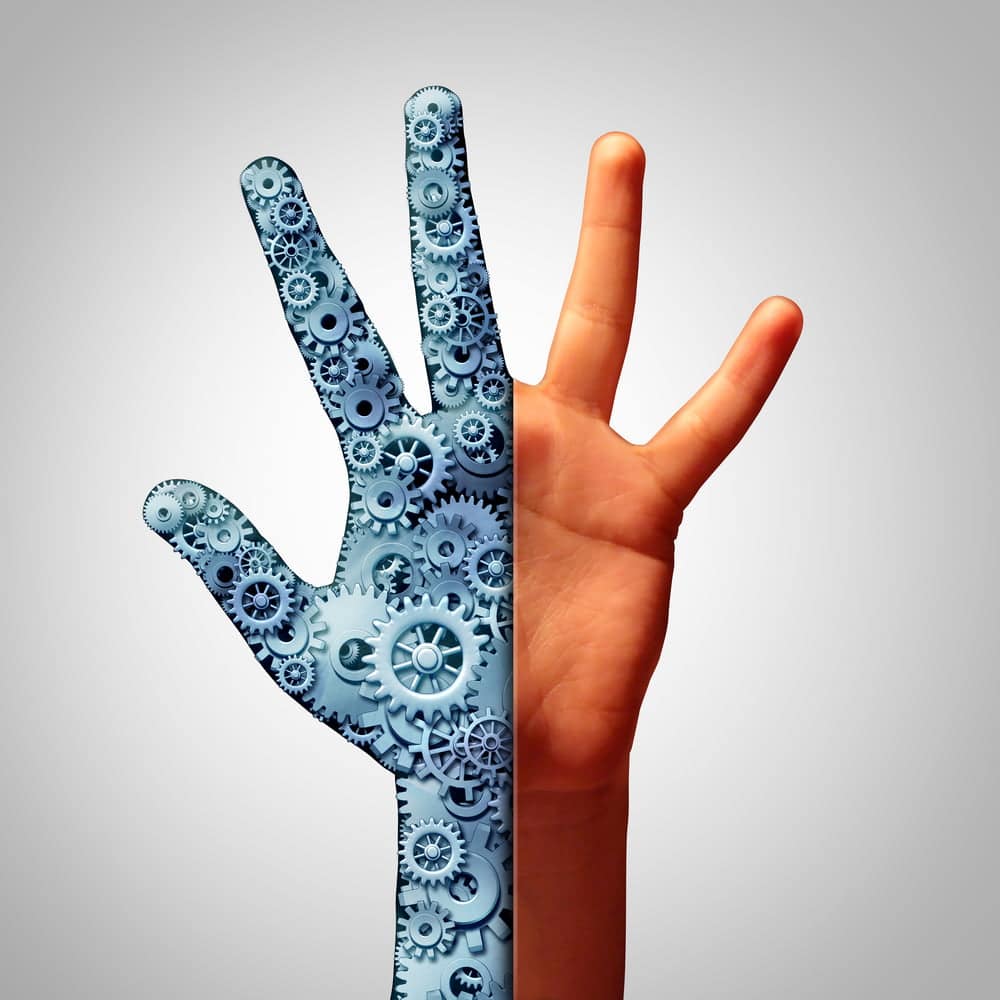According to a new research of cybersecurity company Kaspersky, nearly two-thirds of Europeans would consider increasing physical functions with the technology. A theme apparently dear not only to supporters of the transhumanism.
The investigation, conducted on over 14.000 people in 16 countries showed that opinions vary widely between different demographic groups. People in southern Europe and Morocco (the only non-European country in the survey) were much more open to the prospect of becoming cyborgs through human enhancement than their northern neighbors.
And in Italy?
A whopping 81% of the Italians interviewed said they would consider human augmentation – despite more than half thinking it was dangerous to society – compared to just a third (33%) of Brits.

Age matters
Not surprisingly, the age of the respondents has a strong link with their specific desires. The older people interviewed showed more desire for human enhancement that supported their health, while the younger people focused on improving appearance and sporting or performance skills.
There are also significant differences in gender perspectives. Almost half (48%) of men found it “completely” or “mostly” acceptable to use human enhancement with technology, compared to 38% of women.
Men generally want more strength (23% compared to 18% of women), while women are more likely to have a more attractive body (36 25% against%). If we want to enter into more delicate aspects, only 2% of women would like to improve their genitals, compared to just over one in ten men (11%).
However, all those eager to become cyborgs and fans of human enhancement shared the same priorities: improving physical health and quality of life.
Risks of human enhancement
If we look deeply into people's negative aspects and fears about human enhancement, the data becomes more detailed. Nearly seven out of ten people (69%) of them expect that only the rich will have access to human enhancement technology, while 88% fear their enhanced bodies could be hacked by cyber criminals. But these risks won't stop everyone from embracing technology. “As with other technologies, we will see early adopters willing to compromise their security for the perceived benefits of enhancement,” he says Marco Preuss by Kaspersky.

Many fears, circumstantial and even just. Professor Julian Savulescu of the Oxford Uehiro Center for Practical Ethics at the University of Oxford believes, however, that this could change rapidly. “With human enhancement, we will need some pioneers and some success stories,” she said. “Once you prove it works, people will dive into it.”


